
In this post, Teaching Matters co-editors, Joe Arton and Joséphine Foucher, introduce the blog’s pilot Student Illustrators Project.
Good practice in the Scholarship of Teaching and Learning involves “inquiry focused on student learning, …conducted in partnership with students, [and] … going public” (Peter Felten, 2013). At Teaching Matters, we are dedicated to ‘going public’; expanding the audience and reach of our blogs, podcasts, and videos so that students and staff can trace the ways that teaching and learning interacts with the student experience. As a result, we have launched an exciting new project; partnering with students from the Edinburgh College of Art to create thematic, metaphorical illustrations that tell the story of learning and teaching using visual symbols and thoughtful composition.
This project will showcase the outcomes of the excellent work done with students at ECA, while enabling students to gain experience in editorial illustration. Our aim for the future is that through this collaboration, students will be given the chance to actively engage with and make a meaningful contribution as illustrators to the scholarship, ideas, and practice in Teaching Matters. They will learn about learning and teaching from specialists and innovators across the University and we will learn from them with the ultimate goal of contributing to their career development inside and outside educational contexts.
The editorial team at Teaching Matters are delighted to introduce our first group of student illustrators and share with you their personal journey, their artistic process, and links to their artwork. If you would like to learn more about the Student Illustrator Project reach out to us at Teaching Matters.
Alexander Mackenzie – Internationalization
 Biography
Biography Alexander Mackenzie is an author, illustrator and storyteller that is doing the MA Illustration at Edinburgh finishing this August. He did a MA Fine Art some 10 years ago and has since embarked on an artists life. He has had two books published (humbert bear likes to doze and his illustrated version of homer’s Odyssey.)
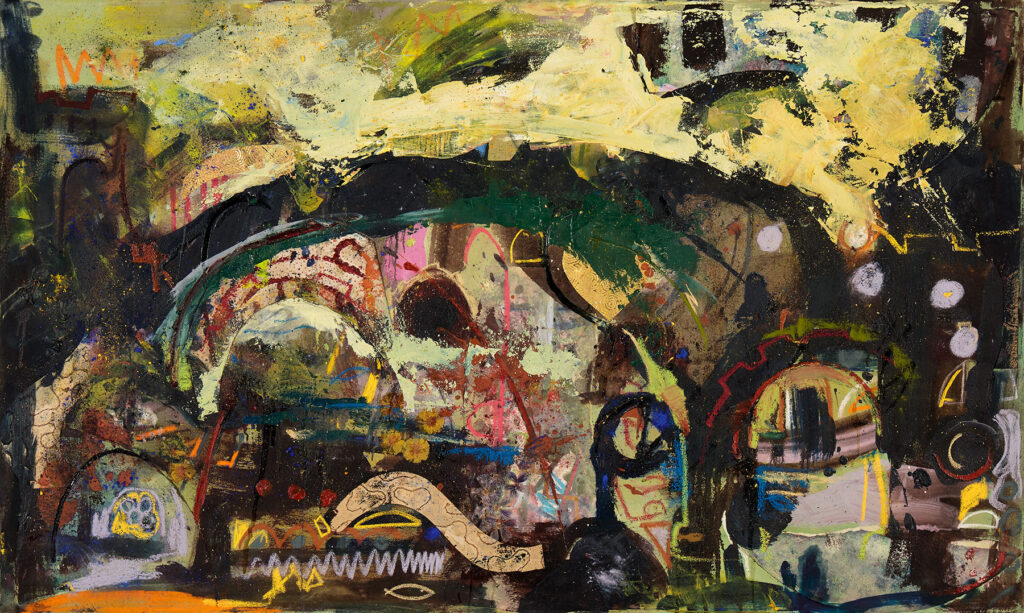
Artistic process
It is typical of him to reframe what he sees as an image with text. For example, the latest snow became a feature for him in his artistic process. He painted some gouache colour on several pages, let the ice freeze the image and covered the image with tissue, more colour and shovelfuls of snow that he left for several snow days. When all was sodden, he dried the whole lot off , ironed the illustrations, cut the up as collage pieces and put together and made an illustrated book about an elephant looking for his waterhole. This is typical of his artistic process. He is now working on putting all the images together as an illustrated book.
Kelly Zou – Open Education Resource Services
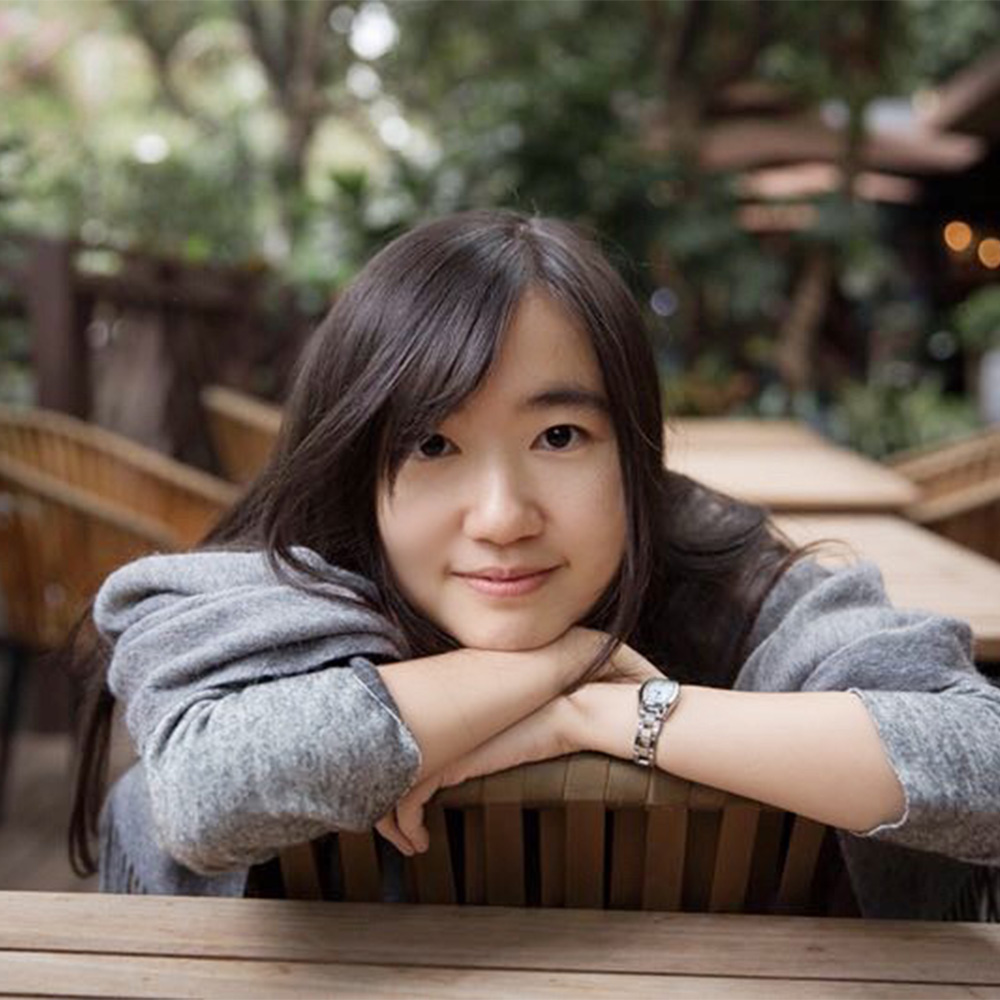 Biography
Biography
Kelly Zou is a storyteller, illustrator, and ex-programmer. She is based in UK and currently studying MA in Illustration in Edinburgh College of Art. She has been the recipient of Honorable Mention in the 2019 3×3 Illustration Awards, her works were chosen for 2019 and 2020 Asia Illustrations Collections, and she is also the illustrator of the book “The Lost Flower Children” by Janet Taylor Lisle published in China. She loves telling stories.
Artistic process
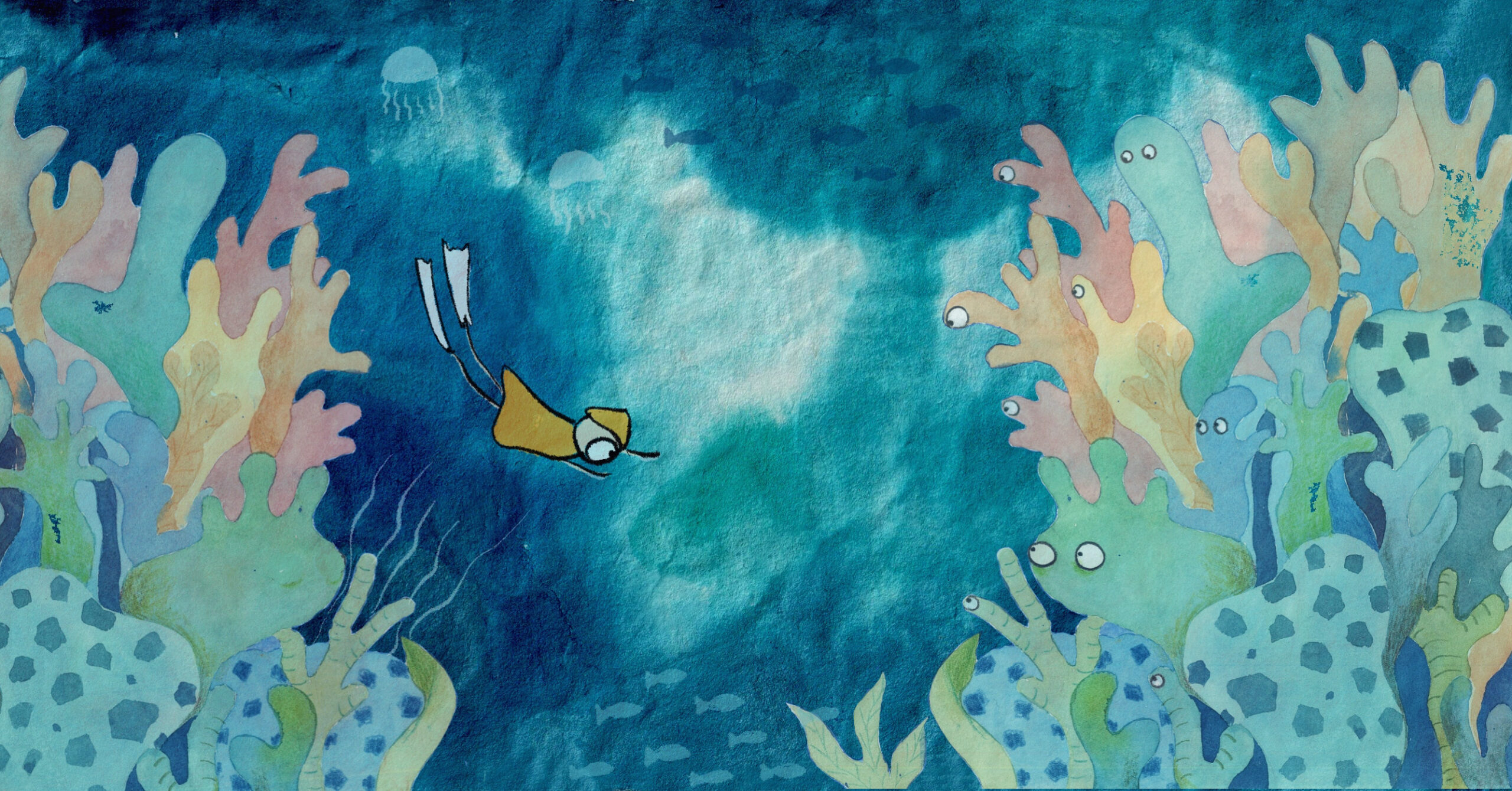
Kelly’s work is mostly informed by her experience and thoughts. She loves reading books and regenerating ideas from them. She often goes outside with her sketchbook to gather visual materials and explore the beauty of nature. Some meanings and philosophy behind her works are also based on her own understandings about life. Kelly uses both traditional materials and digital tools, sometimes she combines both to get special features.
Website: https://www.kellyzou.com/
Instagram: @kelly_zxj
Ying Sun – One year working in a pandemic

Biography
Ying Sun is an illustrator and animator from Nanjing. She is now doing an MA illustration at Edinburgh College of Art. She hopes you will enjoy her work!
Artistic Process
She was a game designer until she discovered that she had a stronger interest in illustration and wanted to go more professional and devote more time to it. At the same time, some of the basic skills she had learned about game design were still being incorporated into her illustrations now, such as modelling characters in 3D softwares or creating GIFS and animations for them. She makes e-books with game elements for some of her illustrations.
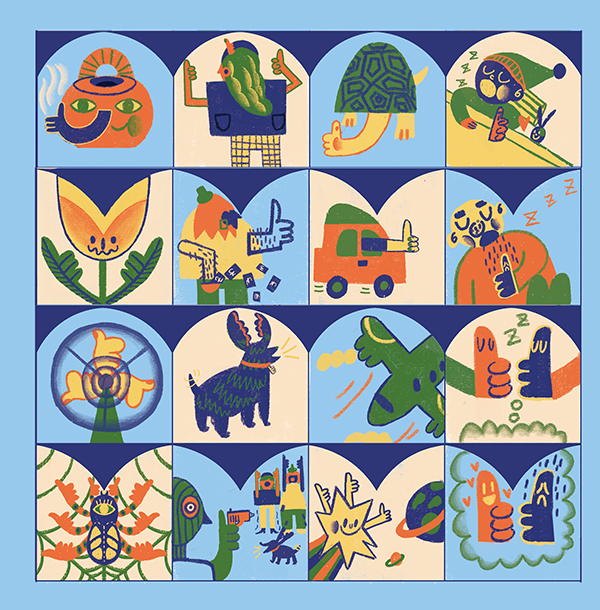
At the beginning of her illustration studies, she always felt overwhelmed and panicked because she didn’t know how to organize the elements in her images, she didn’t even have a basic aesthetic sense of her work, and couldn’t spontaneously identify the strengths or weaknesses of it. Her tutors and classmates were very helpful in providing her with effective and practical feedback on her work. Every week, everyone’s work was discussed as a group, and this helped her to get a full picture of herself . She began to understand that she is now better at designing colour palettes and not good at using narrative language. Some online drawing games have also helped her develop her inspiration. For example, the character she has recently designed is inspired by an activity of drawing the music. Therefore, although all her course is currently built up online, she has still received a lot of impactful help.
She is now refining her personal style and learning how to use illustration to tell a good story. Although she is not a very humorous person, she tried to convey some sense of wit and hilarity to the viewer. She seeks to make her work look interesting more than the sophistication of the graphics.
Instagram: https://www.instagram.com/abigalesun6/
Sara Hassan – Showcase the Edinburgh Teaching Award
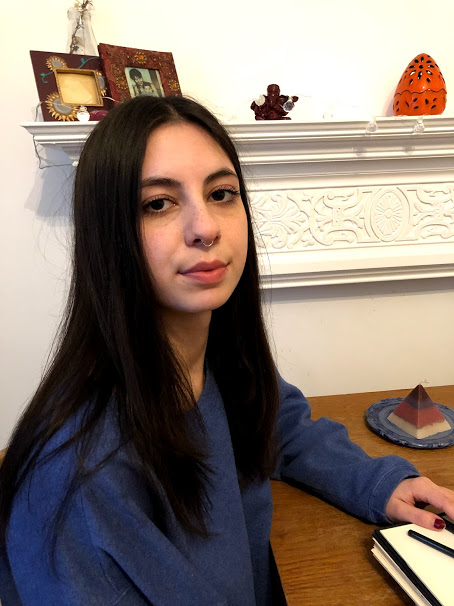
Biography
Sara is an Illustration student at the College of Art originally from Northumberland. She primarily works with gouache and collage, however she enjoys playing with lots of different mediums. When she’s not working on her degree she enjoys travelling and spending time with animals – two of her main inspirations for her illustrations!
Artistic Process
Her artistic process tends to follow a familiar cycle that works well for the majority of her work. She first creates a project moodboard to collect imagery from other illustrators and images relating to the subject matter to get inspired by other illustrators’ approaches and to help her visualise her approach for the project. She also mind maps key words in her sketchbook relating to the theme to create inspiration. For example, with this project having a lot of textual information to use as research, she used mindmapping to help pick out the key aspects that stood out and that are the most important to include.
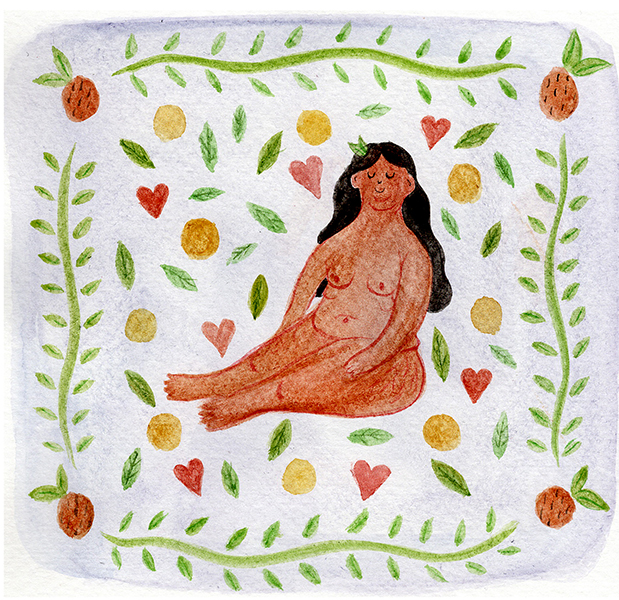
When it comes to mediums she likes to choose usually based on the context of the project. Her go-to is gouache as it creates clear illustrations that are simple and easy for the eye, making it good to communicate a message. After experimenting with mediums, she will create several roughs, to experiment with composition and focal points. She tends to stick to simple compositions without too much in the background, as again she likes to create imagery with simplicity and clarity. Her process when creating finals is very careful and calm; she does not like to rush and she likes everything to go according to plan. To create a relaxing atmosphere, she will often listen to music and clear her desk in order to have an empty space to work freely. She will create her illustration by hand, scan it to her computer, then finish it up on Photoshop so it’s ready to be used!
Instagram: (@saraeveillustration) https://www.instagram.com/saraeveillustration/
Esty account: https://www.etsy.com/uk/shop/SaraEveIllustration
Rachel Collins – Doctoral College
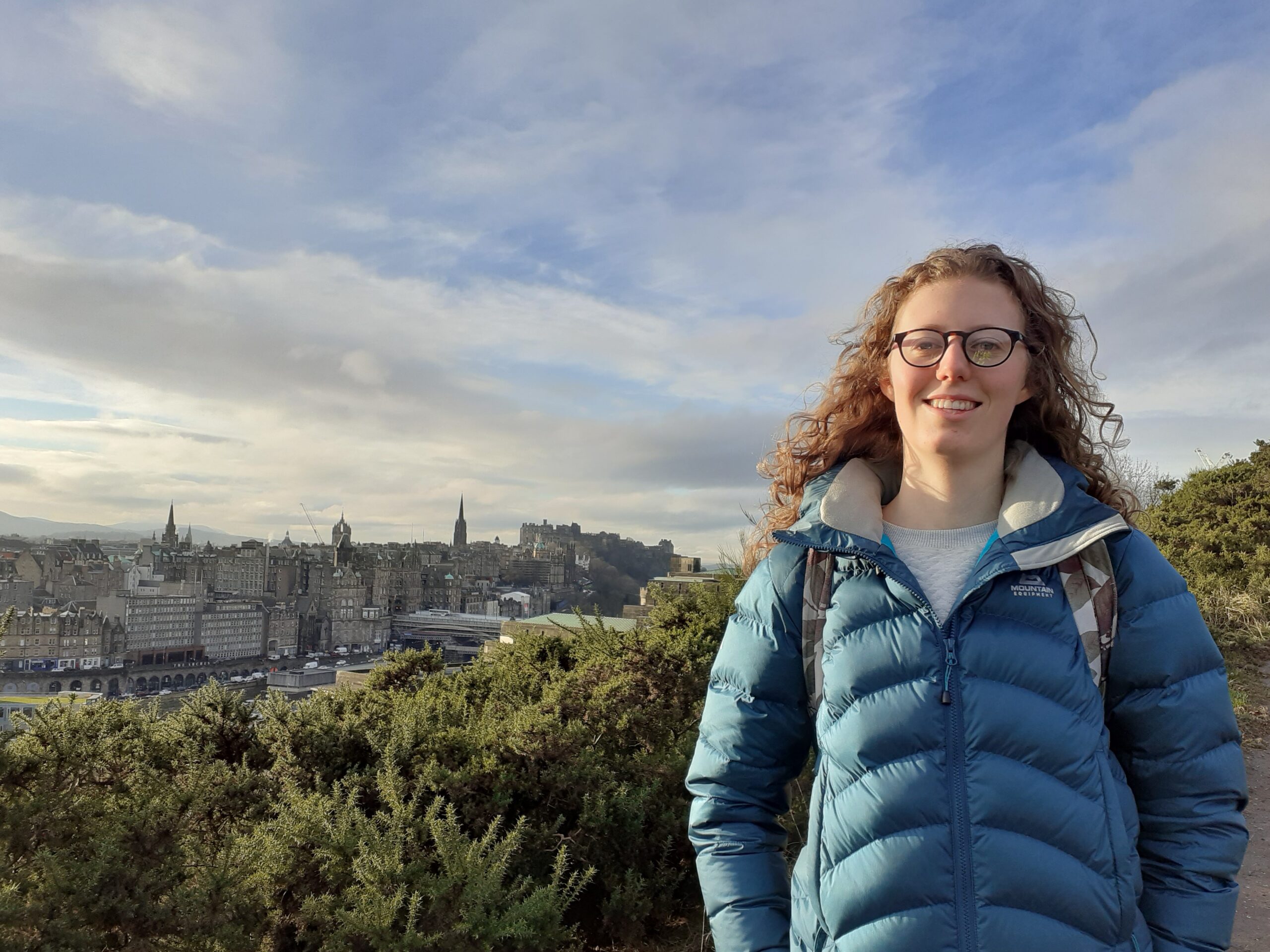
Biography
Rachel is a 2nd year illustration student at Edinburgh College of Art from Northern Ireland. When she’s not illustrating, she loves to spend time outdoors and playing sport. Her favourite place to be is the Mourne Mountains, near her home in Northern Ireland.
Sir David Attenborough recently described saving the planet as a communications issue. Her illustration practice often focuses on communicating her concern for and appreciation of the environment. Her recent work includes a picture book for children focusing on how they can combat environmental issues and she is currently working on a non-fiction picture book for adults communicating the idea of ‘Rewilding’ in Scotland. In the future, she is excited to continue to play her part in this challenge to educate.
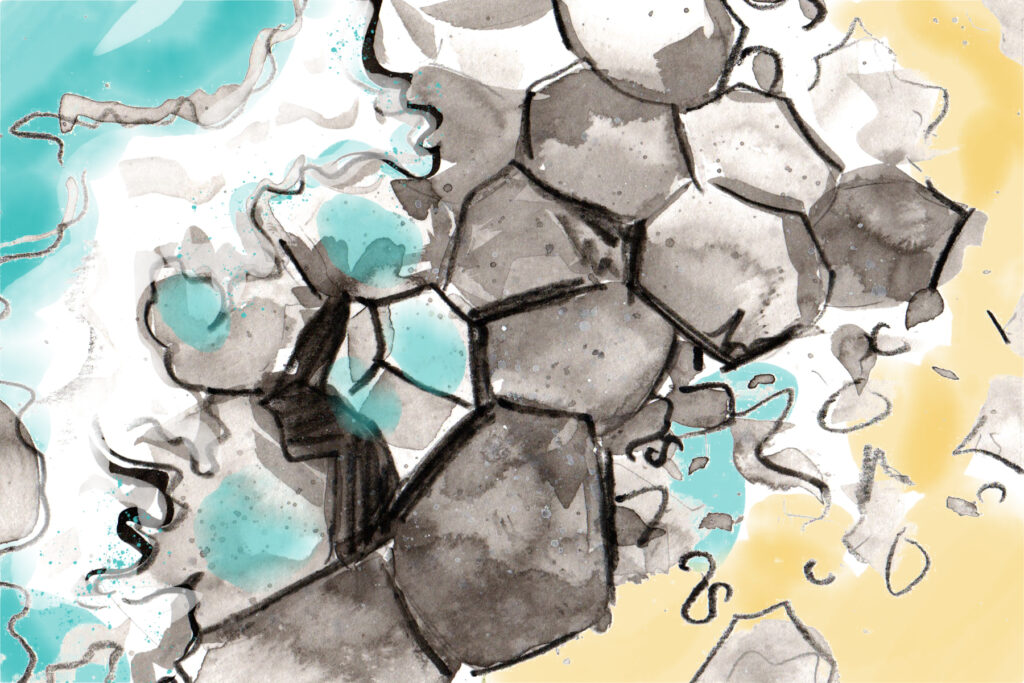
She likes how her illustration course challenges her to think about her work within a wider and real-world context. Therefore, she has also found taking electives from other schools, such as Sustainable Development and Physical Geography, very influential on her work.
She loves working with a diverse range of mediums as it keeps her creatively stimulated. She particularly enjoys being expressive with her mark making and colour. Coming from a fine art background, she is also interested in exploring the relationship between illustration and fine art.
Instagram: @racheldesignsni
 Joséphine Foucher
Joséphine Foucher
Joséphine is doing a PhD in Sociology at The University of Edinburgh. Her research looks at the intersection between art and politics. She works with Joe Arton as the Teaching Matters Co-Editor and Student Engagement Officer.
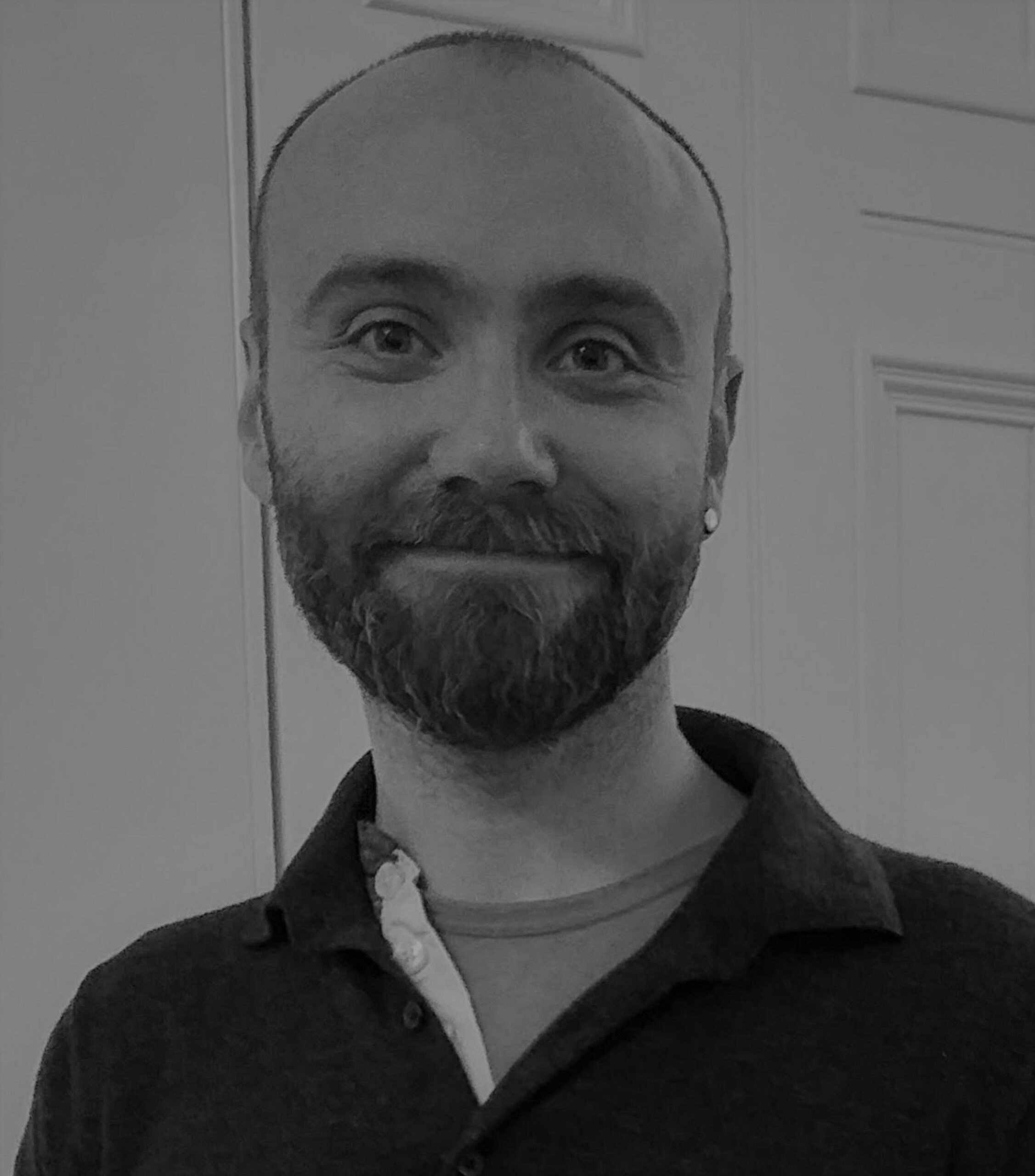 Joseph Arton
Joseph Arton
Dr. Joe Arton is an Academic Developer at the Institute for Academic Development at the University of Edinburgh, he is the co-editor and producer of the Teaching Matters blog and podcast and curates The Edinburgh Hybrid Teaching Exchange, the University of Edinburgh’s internal site for Hybrid Teaching and Learning resources and best practice.

